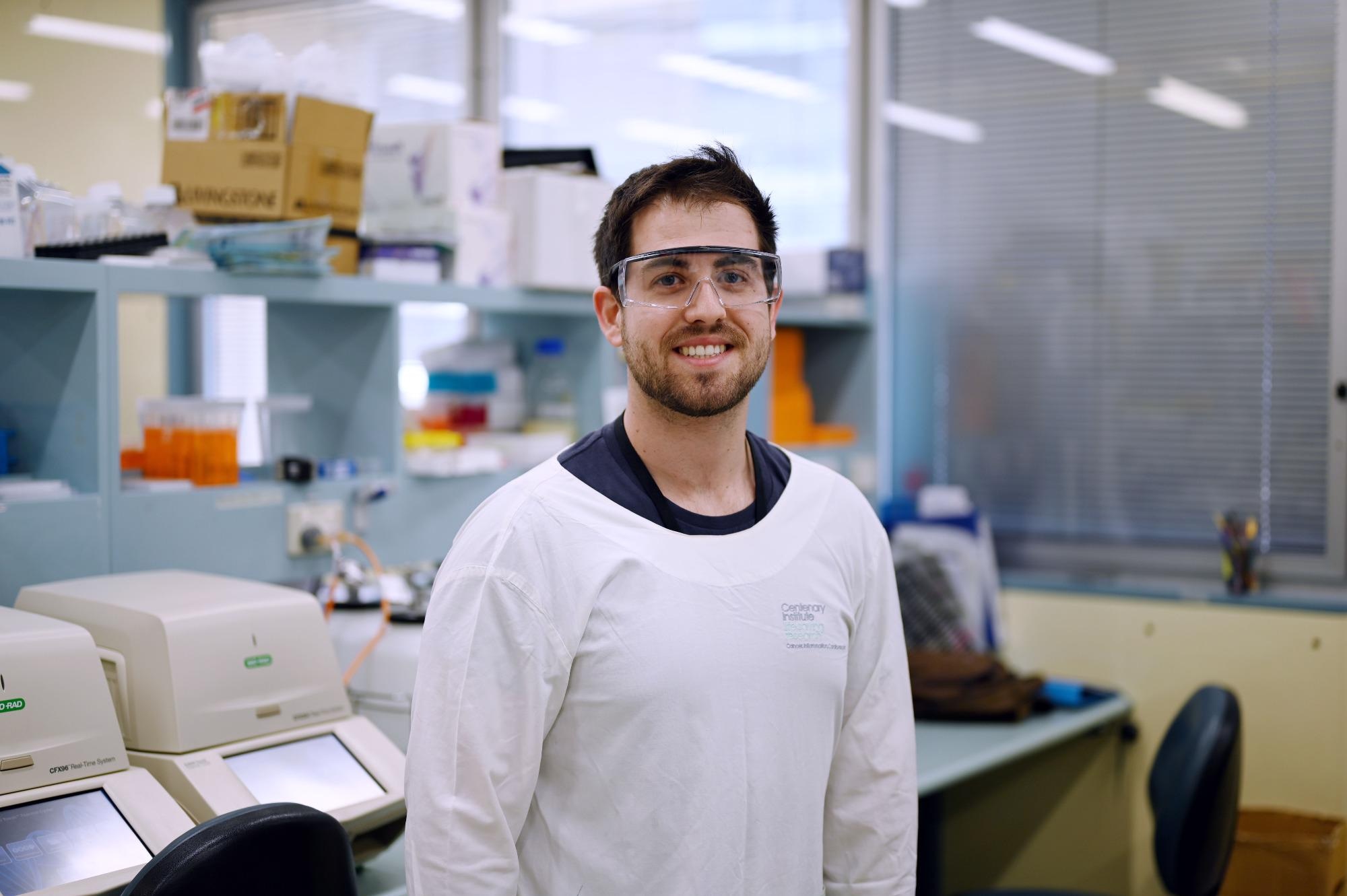Researchers from the Centenary Institute and the University of Technology Sydney have published the first study showing why people with chronic obstructive pulmonary disease (COPD) are at higher risk of developing severe COVID-19.

Dr Matt Johansen. Image Credit: Centenary Institute
The findings, reported in the American Journal of Respiratory and Critical Care Medicine, could lead to the development of new therapeutic interventions that reduce COVID-19 infection in COPD patients.
An inflammatory lung condition, COPD causes airway blockage and makes it difficult to breathe. It affects around 400 million people globally. The increased susceptibility to COVID-19 of COPD patients is still to be fully understood.
In the study, the researchers infected differentiated airway cells from COPD patients and healthy people with SARS-CoV-2 (the virus that causes COVID-19).
The researchers found that the COPD airway cells had 24-fold greater infection with SARS-CoV-2 than the healthy cells.
We examined the genetic information of infected cells through advanced single cell RNA-sequencing analysis. Seven days after SARS-CoV-2 infection, there was a 24-fold increase of viral load in the COPD patient airway cells compared to the cells taken from healthy individuals.”
Dr Matt Johansen, Study Lead Author, Centenary UTS Centre for Inflammation
Significantly, the team found that the infected COPD cells had increased levels of transmembrane protease serine 2 (TMPRSS2) and cathepsin B (CTSB). Both are enzymes that SARS-CoV-2 uses to enter into the host cell.
“These two enzymes are increased in COPD patients and favor greater SARS-CoV-2 infection compared to healthy people. Simply put, easier and increased cell infection makes it far more likely that individuals with COPD will have more severe disease outcomes,” said Dr Johansen.
Other results from the study showed additional reasons for COPD patient susceptibility to severe COVID-19.
Key anti-viral proteins (interferons) that protect against infection were largely blunted in the COPD patient airway cells. This was a likely trigger in causing increased viral production in COPD patients.
Dr Johansen said that infected COPD patient airway cells also had higher levels of pro-inflammatory cytokines, which are linked to more severe COVID-19 and COPD outcomes.
“COPD is an inflammatory disease with patients having increased inflammation at baseline compared to healthy people. It’s highly likely that SARS-CoV-2 exacerbates this existing high inflammation level which leads to even poorer outcomes,” he said.
Initial laboratory drug testing by the researchers, to inhibit the enzymes TMPRSS2 and CTSB, and to target the high inflammation levels, successfully and substantially reduced SARS-CoV-2 viral levels in COPD patient cells, ultimately confirming the study’s results.
Collectively, these findings have allowed us to understand the mechanisms of increased COVID-19 susceptibility in COPD patients. We believe that new drug treatments targeting relevant enzymes and pro-inflammatory responses in SARS-CoV-2 infection could have excellent therapeutic potential in reducing the severity of COVID-19 in patients with COPD.”
Phil Hansbro, Study Senior Author and Professor, Director of the Centenary UTS Centre for Inflammation
Professor Hansbro said the research was critical with hundreds of millions of people affected by COPD globally and with COVID-19 likely to be around for many years to come.
Source:
Journal reference:
Johansen, M.D., et al. (2022) Increased SARS-CoV-2 Infection, Protease and Inflammatory Responses in COPD Primary Bronchial Epithelial Cells Defined with Single Cell RNA-Sequencing. American Journal of Respiratory and Critical Care Medicine. doi.org/10.1164/rccm.202108-1901OC.